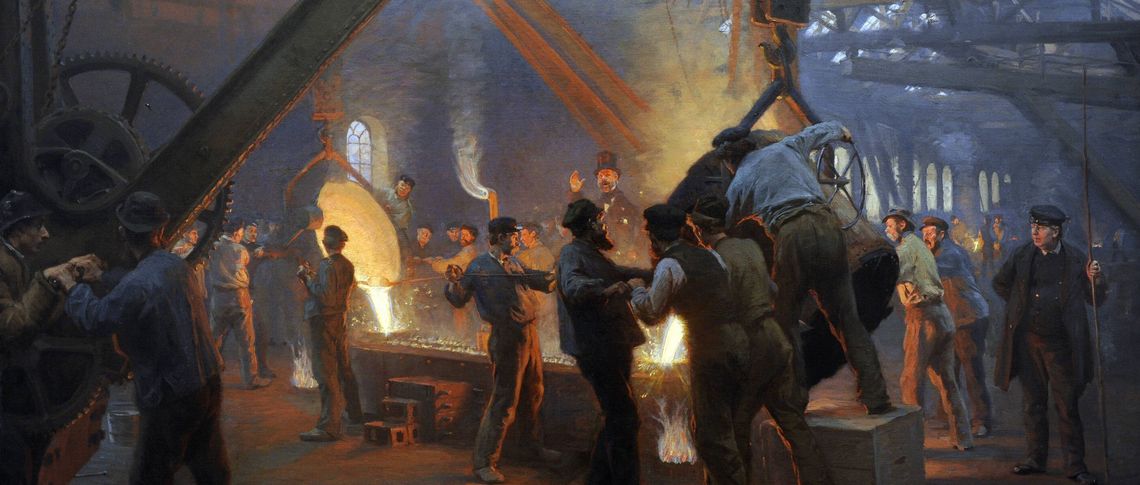Last summer, the British Labour Party won a landslide victory after 14 years of Conservative rule. Since then, Labour has collapsed dramatically, dropping from 34 per cent to below 20 per cent in the polls, losing a painful election in Wales, and facing a situation where the majority of voters want Keir Starmer to resign. How do you explain such a dramatic downturn in such a short period of time?
When Labour won in July 2024, there was a fair amount of goodwill toward the new government. However, there was also scepticism about what the government could deliver. People were worried about the state the Conservatives had left the country in. There were also questions about what Labour really meant by ‘change’, its campaign slogan.
After a fairly sure-footed start, especially on foreign policy, the government made several missteps that cost it dearly. The most significant was the decision to cut the winter fuel allowance, not just for wealthier pensioners, which would have been justifiable, but for middle-income pensioners as well. Labour did this to reassure the markets ahead of its first major budget, to show it could be trusted with public finances. But the move unsettled people and raised doubts about what Labour actually stood for.
At the same time, Labour kept blaming the Conservatives without giving a clear destination of what they were going to do. Confidence fell among businesses and voters alike. When the budget eventually came, it included a substantial increase to employers’ National Insurance contributions. Businesses felt this cut against everything Labour had promised about growth and wealth creation.
Since then, we've seen a disappointing economic performance. On top of that, you had the ‘freebies’ scandal: It’s quite normal for MPs to be given tickets to events or dinners or things like that, but they’re required to declare it. When this all came out, the public was quite taken aback. Labour failed to get a grip on that quickly. In opposition, they had successfully repositioned the party as fighting for ordinary working people. In government, their decisions and handling of these issues made it feel like they’d lost sight of that.
While Labour hasn’t maintained clear communication with voters, the right-wing Reform party has surged by presenting itself as the outsider with no track record, and it’s attracting voters drifting away from both the Conservatives and Labour. So, it’s a tough picture. But the next general election is likely three or four years away, and a lot can still change in that time. Labour can turn things around, but only if it corrects course.
Reform UK, now leading in the polls, seems to channel the frustrations of voters who feel politically neglected. What does Reform UK understand about today’s electorate that Labour – and much of the European centre-left – still does not?
Reform has made immigration its central issue. Much of the European centre-left has often avoided talking about immigration because of the tensions it can raise. Reform has done the opposite. They’ve put immigration front and centre and then used that as a springboard to set out a broader agenda on the economy, on institutional reform, on cutting state spending. They’ve made it clear they’re more than just an anti-immigration party.
The next few years offer them a real opening. In May 2026, there’s a major set of elections, our closest equivalent to US midterms, including contests for the Welsh Assembly and the Scottish Parliament. Reform will be aiming to make serious gains there. Right now, they’re polling ahead of the other major parties nationally, and they’ll try to convert that into actual electoral success, which they haven’t yet achieved. If they manage to do that, it will give them even more oxygen.
Their platform is straightforward: anti-immigration, anti–big state, a clear right-wing agenda. At some point, they will come under increasing scrutiny for that. But at the moment, the dominant feeling among voters is simply that they want change — and they don’t yet feel Labour has delivered it. That sentiment is proving more powerful than sticking with what you know.
Looking beyond the UK: centre-left parties across Europe – from Germany’s SPD to the Dutch Labour Party – are struggling. What, in your view, is the single most important strategic shift these parties must make to regain strength?
The issue is that the structure of their electoral base has changed. It hasn’t disappeared, it’s just changed in nature. These parties grew out of a working class that used to be much more homogenous. A very heavy industrial manufacturing base, mostly male, older and not very diverse.
In my book The New Working Class, I argued that the working class hasn’t gone anywhere — it’s just transformed. Today it’s much more diverse, much younger, more female, and also has more people working in the service sector. In the UK, it’s also increasingly multi-ethnic. So, while losing that old, uniform base has been a big problem for social democratic parties, really understanding who their new base is, and how different it looks, is actually the answer.
And of course, this looks a bit different in every country because our electoral systems and class structures vary. But broadly speaking, the people who still vote for centre-left parties tend to be low- to middle-income, and they’re more likely to be younger or middle-aged rather than older. In the UK, Labour would be looking at 35- to 55-year-olds — people who are suddenly at that stage of life where money starts to get tighter because you’re thinking about childcare or getting onto the housing ladder. And that’s usually the moment when you find out things just don’t quite work, in terms of what you can afford and what opportunities you actually have.
So, we need the right diagnosis, this structural shift in class, which points the way forward. You have to connect with voters on what they actually think and feel and want for their lives. And most of what they want is entirely reasonable: a decent job close to where they live, the ability not just to cover the basics but to save a bit, maybe even go on holiday. It’s totally fair for people to expect politicians to work towards that.
But for lots of reasons, centre-left parties have drifted away from these everyday concerns. Going back to these basics, daily and very normal aspirations, that’s the path forward.
Where do you see good examples of centre-left parties that have managed to adapt to this new working class and put forward policies that really resonated with voters?
For example, in Australia, the Labour Party, which has just won its second election, has made sure its promises are very tangible, things people can actually recognise in their daily lives. They understood that what really mattered to people were energy costs and healthcare. So, they built their campaign around the energy rebate they’d already delivered, and then offered a rapid rollout of discounted solar panels to bring household bills down.
They also saw that their policy on urgent health centres was quite popular. So, they built on that and promised another wave of these centres in the next election. In other words, they focused on very everyday concerns.
In Denmark, there’s been a deep reflection on what the Danish social model actually is. And while Denmark’s immigration policies may not suit every country, what’s interesting is that they aligned their idea of citizenship with what that means for immigration. It’s not that everyone needs to copy Denmark’s blueprint, but they recognised that immigration is linked to questions of citizenship — what people contribute and what becoming a citizen should involve. I think those are pretty fundamental examples of how centre-left parties can think differently about these issues.
Speaking of Denmark, the Labour government is now preparing a major overhaul of the UK’s asylum system, closely modelled on the Danish approach. How do you assess this shift and do you see it as a step in the right direction?
It’s a step in the right direction in that the reforms recognise that the current situation is untenable for UK residents, but also for migrants themselves who are being put at risk. Proposals to increase the time before a migrant can apply for permanent status from five years to twenty are intended to make Britain less attractive for those coming through illegal routes, and to make the system fairer for taxpayers. The idea is also to encourage migrants to support themselves through work when they do arrive.
These reforms will need to be part of a wider approach to getting control of migration. Centre-left parties elsewhere can learn from the Danish reforms, but the exact approach will differ in each country depending on its culture, history and specific circumstances.
Critics often argue that when centre-left parties move to a stricter position on migration, voters will simply choose the ‘original’ on the right instead. What do you say to this?
The centre-left has to be seen as effective and responsible on immigration, because it’s already at the front of the minds of voters. We don’t get to choose whether it’s an issue, it comes up on its own. Avoiding it, either in policy terms or politically, just isn’t an option.
When immigration becomes a top issue in an election, that’s rarely a good place for a centre-left party to be. Ignoring it or hoping it will disappear doesn’t help. And it can actually heighten tensions between migrants and non-migrants if politicians refuse to address it. That’s why you have to engage with it directly.
The most important thing we can do is put in place policies that can actually be delivered competently, so people feel the system is fair and managed. This isn’t about saying ‘no migration’. Our economies depend on a steady flow of migrants to keep the workforce going. But when people think there’s no control at the border, they feel destabilised. That’s not an unreasonable reaction. It also makes them question the basic competence of a government that doesn’t seem to know who is coming in and out of the country.
Rather than trying to compete with the right through tough rhetoric, the better approach is to deliver a well-run migration system that reassures people. That’s how you take the heat out of the issue before an election, which is exactly what the Australian Labour Party did. You address it early in your term, not at the last minute. In a campaign, you want the debate to be about the economy or public services — areas where the centre-left can actually win.
My advice would be: lower the temperature in how you talk about immigration, but raise your effectiveness in dealing with it. Voters need to feel you’ve got the borders under control.
This interview was conducted by Nikolaos Gavalakis.






